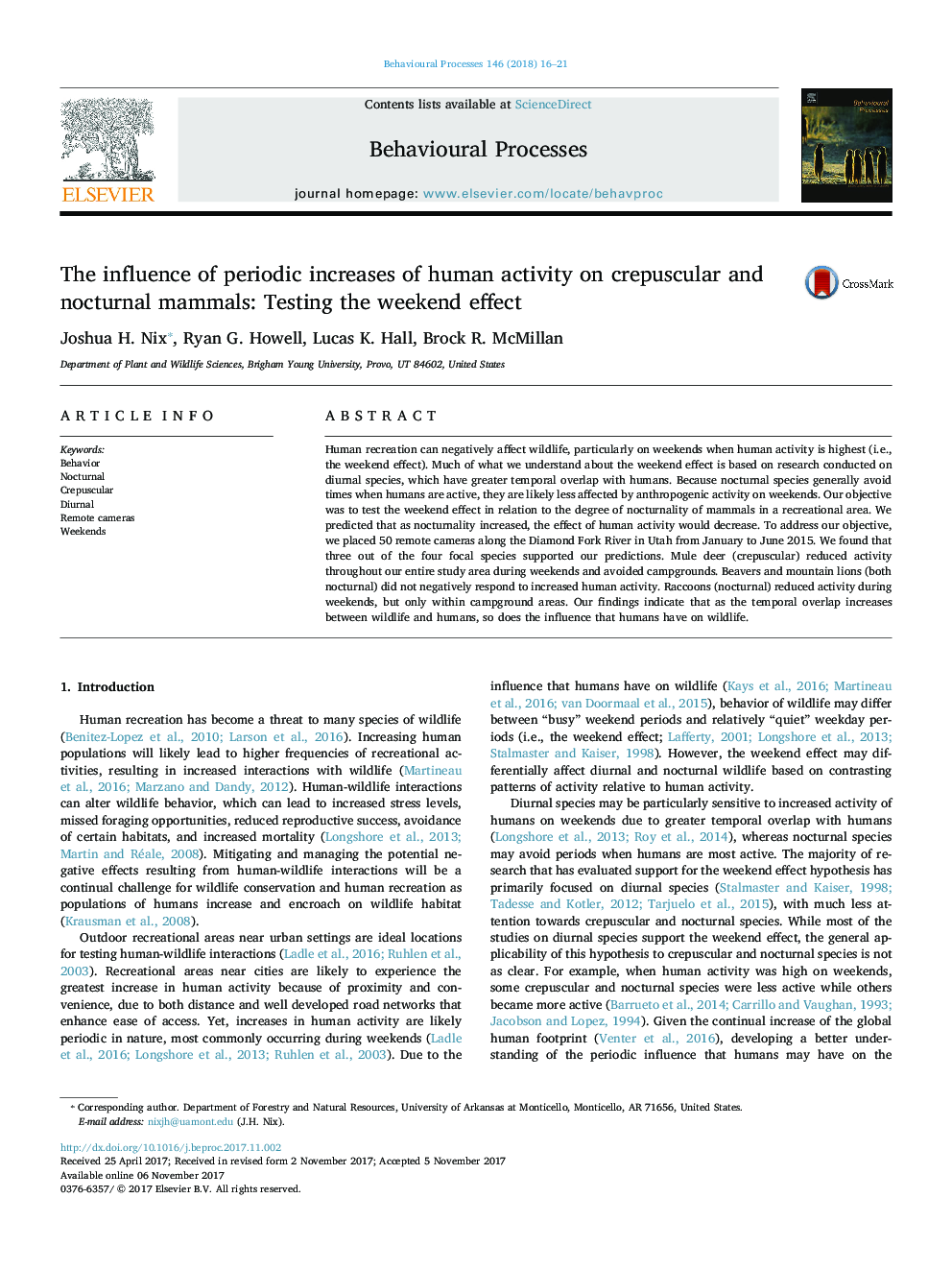| Article ID | Journal | Published Year | Pages | File Type |
|---|---|---|---|---|
| 8497026 | Behavioural Processes | 2018 | 6 Pages |
Abstract
Human recreation can negatively affect wildlife, particularly on weekends when human activity is highest (i.e., the weekend effect). Much of what we understand about the weekend effect is based on research conducted on diurnal species, which have greater temporal overlap with humans. Because nocturnal species generally avoid times when humans are active, they are likely less affected by anthropogenic activity on weekends. Our objective was to test the weekend effect in relation to the degree of nocturnality of mammals in a recreational area. We predicted that as nocturnality increased, the effect of human activity would decrease. To address our objective, we placed 50 remote cameras along the Diamond Fork River in Utah from January to June 2015. We found that three out of the four focal species supported our predictions. Mule deer (crepuscular) reduced activity throughout our entire study area during weekends and avoided campgrounds. Beavers and mountain lions (both nocturnal) did not negatively respond to increased human activity. Raccoons (nocturnal) reduced activity during weekends, but only within campground areas. Our findings indicate that as the temporal overlap increases between wildlife and humans, so does the influence that humans have on wildlife.
Related Topics
Life Sciences
Agricultural and Biological Sciences
Animal Science and Zoology
Authors
Joshua H. Nix, Ryan G. Howell, Lucas K. Hall, Brock R. McMillan,
